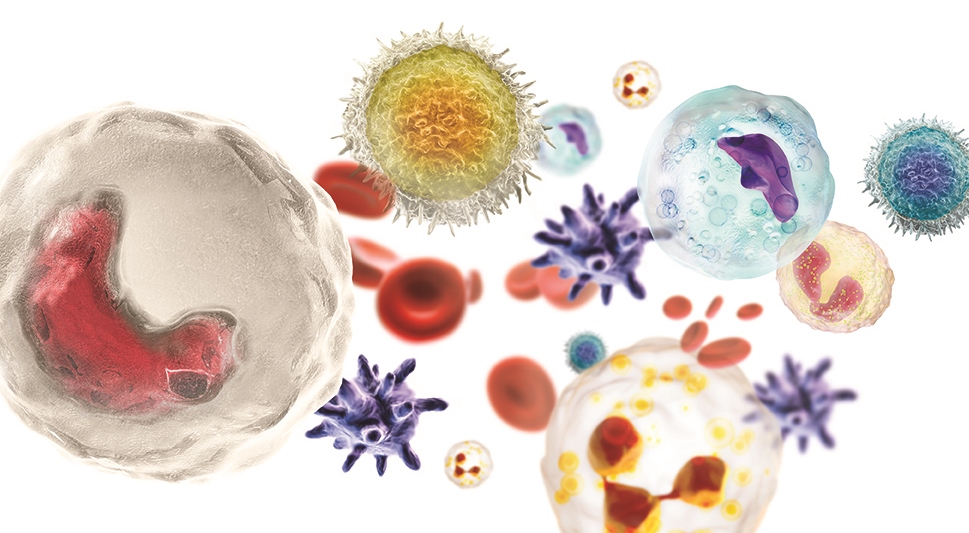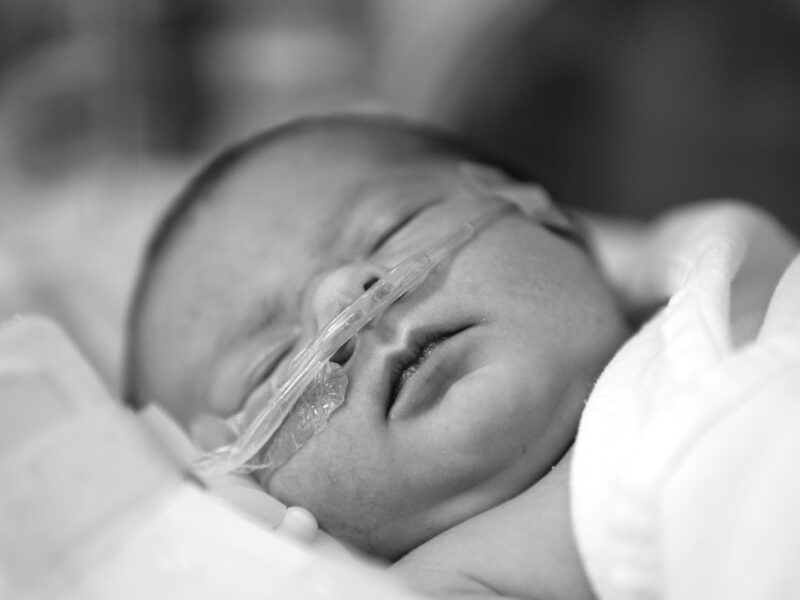Shedding Light on Immune Responses in Children With Acute Asthma Exacerbations
Shedding Light on Immune Responses in Children With Acute Asthma Exacerbations https://pediatricsnationwide.org/wp-content/uploads/2015/10/Pediatrics_Nationwide_feature_extra-art.jpg 969 533 JoAnna Pendergrass, DVM JoAnna Pendergrass, DVM https://pediatricsnationwide.org/wp-content/uploads/2021/03/pendergrass_01.jpg
The innate immune system is upregulated in children hospitalized with acute asthma exacerbations, signaling a need for therapies that target innate immune pathways to help control acute asthma flare-ups more effectively.
Asthma affects more than 6 million children in the United States, yet little is known about the immune responses that occur with acute asthma exacerbations.
“Evaluating gene expression through RNA sequencing is ideal to see how the immune system works as a whole,” says Shahid Sheikh, MD, a pediatric pulmonologist at Nationwide Children’s Hospital. “However, access to the facilities to perform this type of testing is not widespread.”
In a study recently published in Pediatric Allergy and Immunology, Dr. Sheikh, Rodney Britt, PhD, a principal investigator in the Center for Perinatal Research at Nationwide Children’s and their research team used RNA sequencing to demonstrate an upregulated innate immune response in children with acute asthma exacerbations.
Study Details
The researchers aimed to define the immune profiles of children with acute asthma exacerbations and determine whether factors such as asthma severity or an acute viral infection during asthma exacerbation impacted that immune profile.
They enrolled 34 children aged 5 to 18 years: 20 were admitted to Nationwide Children’s for acute asthma exacerbation, and 14 were age-matched controls who did not have asthma or other health conditions, including allergic rhinitis.
In addition to collecting demographic data, the researchers performed viral polymerase chain reaction (PCR) with nasopharyngeal swabs to identify viral infections and determine if the infection impacted the immune profile of patients with acute asthma exacerbation.
The research team also collected blood samples to conduct enzyme-linked immunosorbent assay (ELISA) for measuring pro-inflammatory cytokine levels and performed whole-blood RNA sequencing for evaluating gene expression related to immune pathways.
Study Results
Children with acute asthma exacerbations received systemic steroid therapy and were significantly more likely to experience cigarette smoke exposure and have a family history of asthma.
Twelve of the 20 patients with asthma had positive viral PCR results. However, neither a viral infection nor asthma severity affected the immune response in these patients, suggesting a more generalized immune response, notes Dr. Sheikh.
“We expected that having more severe asthma would be reflected in an acute asthma exacerbation, but that was not the case,” says Dr. Britt.
Cytokine and gene expression findings
IL-10 and IL-1 receptor antagonist (IL-1RA) cytokine levels were significantly higher in the patients with asthma than the controls. The IL-1 cytokine family is involved in the innate immune response, while IL-10 is involved in the innate and adaptive immune responses.
RNA sequencing analysis revealed upregulation of innate immune pathways, including IL-1R and IL-1 signaling pathways, and downregulation of adaptive immune pathways in patients with asthma.
The innate immune pathways remained upregulated despite corticosteroid therapy, suggesting that steroids do not regulate this type of immune response, says Dr. Sheikh.
He also notes the potential therapeutic significance of increased Il-1RA levels and gene expression.
“Our study’s findings highlight the possibility of therapies beyond steroids and T helper 2 cell regulation to help control asthma,” he adds.
Future Research
“We plan to examine the innate immune response in children with chronic stable asthma over time, comparing their immune responses during stable phases of asthma to those during acute asthma exacerbations,” says Dr. Sheikh.
Dr. Britt is looking toward future research to study the immune pathways and immune cell function in more detail in patients with acute asthma exacerbations.
“Taken together, this study represents a strong collaboration between basic science and clinical researchers,” Dr. Britt says, “providing a strong foundation to continue building our collaboration in acute asthma.”
Reference:
Sheikh S, Eisner M, Walum J, Heyob K, Khan AQ, Lewis B, Grayson M, Kopp B, McCoy K, Britt Jr R. Innate immune responses are increased in children with acute asthma exacerbation. Pediatric Allergy and Immunology. 2024;35e:314173.
Image credit: Nationwide Children’s
About the author
JoAnna Pendergrass, DVM, is a veterinarian and freelance medical writer in Atlanta, GA. She received her veterinary degree from the Virginia-Maryland College of Veterinary Medicine and completed a 2-year postdoctoral research fellowship at Emory University’s Yerkes Primate Research Center before beginning her career as a medical writer.
As a freelance medical writer, Dr. Pendergrass focuses on pet owner education and health journalism. She is a member of the American Medical Writers Association and has served as secretary and president of AMWA’s Southeast chapter.
In her spare time, Dr. Pendergrass enjoys baking, running, and playing the viola in a local community orchestra.
- JoAnna Pendergrass, DVMhttps://pediatricsnationwide.org/author/joanna-pendergrass-dvm/
- JoAnna Pendergrass, DVMhttps://pediatricsnationwide.org/author/joanna-pendergrass-dvm/
- JoAnna Pendergrass, DVMhttps://pediatricsnationwide.org/author/joanna-pendergrass-dvm/
- JoAnna Pendergrass, DVMhttps://pediatricsnationwide.org/author/joanna-pendergrass-dvm/










